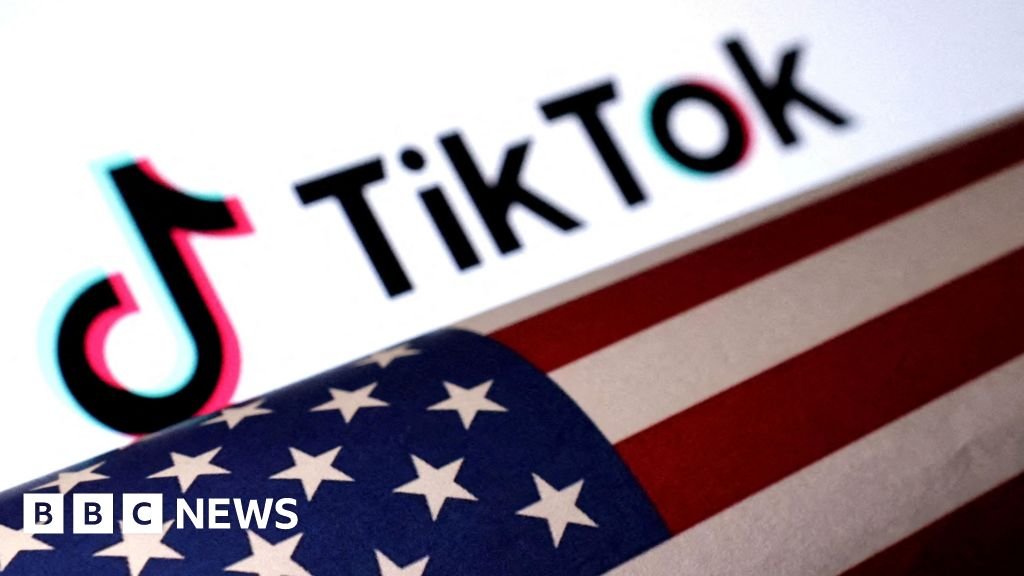TikTok’s attempt to overturn a law that would ban or sell TikTok in the United States starting in early 2025 has been rejected.
The social media company had hoped a federal appeals court would agree with its argument that the law was unconstitutional because it represented It has had an “alarming” impact on the free speech of its 170 million U.S. users.
But the court upheld the law, calling it “the culmination of extensive, bipartisan action by Congress and successive presidents.”
TikTok said it will now take the case to the U.S. Supreme Court, the nation’s top legal body.
The United States wants to sell or ban TikTok because it claims its owner has ties to the Chinese government — ties that TikTok and parent company ByteDance have always denied.
The court agreed that the law was “carefully designed to respond solely to control by foreign adversaries and is part of a broader effort to address well-documented national security threats posed by the People’s Republic of China.”
But TikTok said its legal battle is not over.
“The Supreme Court has a long track record of protecting Americans’ right to free speech, and we hope they do the same on this important constitutional issue,” a TikTok spokesperson said in a statement.
They added that the law was based on “inaccurate, flawed and hypothetical information” and that the ban would censor U.S. citizens.
Donald Trump’s victory in the 2024 US presidential election could also provide a lifeline for the app.
Despite unsuccessfully trying to ban TikTok during his first term in 2020, he said on the eve of the November election that he would not allow a ban on TikTok to take effect.
Trump will be inaugurated on January 20, the day after TikTok is legally required to be banned or sold.
However, it remains to be seen whether he will fulfill his pre-campaign vows.
James Grimmelmann, a professor at Cornell University, said the president-elect would “swim upstream and give TikTok breathing room.”
“The anti-China sentiment in the U.S. Congress is very strong, so there are now a large number of voters in both parties who want to restrict TikTok from entering the U.S. market,” he told BBC News.
The court case is being closely watched by TikTok users and the app’s competitors.
Tiffany Cianci, a small business advocate and TikTok creator, said she was “not shocked” by Friday’s decision, but told BBC News that she would not transfer TikTok content or presence to the platform’s competitors, such as Instagram.
She said: “I would not do what they want to do and bring my content to their platforms because the content on those platforms will not be as successful, more susceptible to censorship and I will have more control over the audience. reduce.”
Still, other platforms are preparing for a post-TikTok social media landscape.
Meta, which owns Facebook as well as Instagram, WhatsApp and Threads, has been trying to build a competitor to TikTok’s short-form videos in its own app, and The company made changes that users compared to TikTok amid questions about its future in the U.S..
Jasmine Enberg, chief analyst at eMarketer, said there would be “significant upheaval” if TikTok’s appeal failed in the Supreme Court and the ban was enforced.
She said this would “benefit Meta, YouTube and Snap, while harming content creators and small businesses that rely on the app to make a living.”
But TikTok won’t be easily rebuilt, said Cory Johnson, chief market strategist at Epistropy Capital Research. Johnson said deep learning models power TikTok’s recommendation engine.
“Achieving such complex artificial intelligence and big data processing at TikTok’s massive scale requires massive and expensive technology infrastructure,” Johnson said.
TikTok’s hyper-targeting and China’s data laws pose significant risks, he said, pointing to Elon Musk’s changes to the algorithm of his social media platform X, formerly known as Twitter, as a warning.
Johnson said that in the lead-up to the U.S. election, Musk’s political posts received more views than all U.S. political campaign ads on the X Disclosure dataset.
“We have very real and recent experience in the United States with social media networks adjusting their algorithms to favor certain voices,” he added.
